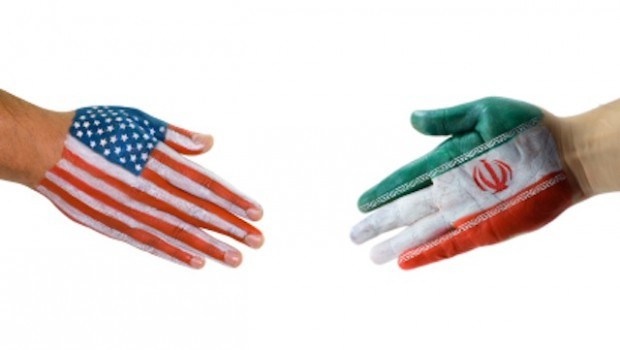US summit aims to calm Arab fears over Iran
Published on 13 may 2015His main goal will be to try to convince them that a potential agreement curbing Iran's nuclear programme would not weaken their traditional alliance.
But a last-minute decision by King Salman of Saudi Arabia not to attend the summit has highlighted the tensions between Washington and the Gulf nations over President Obama's Middle East policies.
They've grown distrustful of the White House since Mr Obama's initially sympathetic response to the Arab uprisings, and are frustrated with his reluctance to get more involved in the Syria conflict.
Now they're deeply wary about any nuclear detente with Iran amidst an increasingly sectarian contest for regional dominance between Sunni Arabs and Shia Tehran.
They fear the lifting of sanctions would empower Iran to increase its support for armed Shia groups in Syria, Iraq, Lebanon and Yemen.
So they're seeking stronger security guarantees.
"In the past we have survived with a gentleman's agreement," the UAE ambassador Yousef al Otaiba told a Washington forum recently. "Now I think we need something in writing, something institutionalised."
"They want to hear that we're there and we care," said Robert Malley, Mr Obama's point man on the Middle East.
The summit will indeed focus on strengthening and modernising America's long-time security relationship with the six powers of the Gulf Cooperation Council (GCC) - Saudi Arabia, the United Arab Emirates, Kuwait, Bahrain, Qatar and Oman.
But it won't result in the kind of formal defence pact they've requested - Congress would be unlikely to approve.
Instead, say US officials, there will be a clear articulation of America's continued commitment to protect them from external threats, most probably in a non-binding statement.
The US will also renew its push to integrate the disparate militaries of the Gulf in an anti-missile defence system to guard against Iranian attack. So far that's been held up by internal rivalries.
And Washington wants to develop better strategies for countering terrorism, cooperating on cyber and maritime security, and conducting joint military exercises.
GCC leaders are expected to pursue new arms sales, but won't get the sophisticated F-35 fighter jets some are seeking. Those have been promised to Israel, whose military superiority the Americans are committed to protect.
US officials note they've already ensured access to some of the most advanced American armaments for Gulf Arabs, who have a collective annual defence budget of $135bn. Iran's is estimated at between $10bn and $17bn.
There's a widespread perception that this agenda wasn't enough to entice most Arab leaders to the summit - four are sending deputies. Two of them because of illness - Oman and the UAE - but King Salman's is the most weighty absence.
Saudi and US officials insist it's not a snub. They say the Saudi princes replacing the king are the ones who deal with the security issues on the table.
And they stress the monarch wanted to oversee a humanitarian ceasefire in Yemen, where he's come under pressure to rein in an Arab air campaign against Iranian-backed Houthi tribesmen.
The bombings have prompted Iran to accuse Riyadh of being the one to opt for confrontation.
It is an "undemocratic, tribal government" that must not consider Yemen as its backyard, Ali Akbar Velayati, the foreign policy advisor to Iran's supreme leader, told the Financial Times.
He dismissed the summit as a show of "Iranophobia" that wouldn't affect the nuclear negotiations or Arab attempts to undermine Iran.
The Yemen and Syria conflicts will be on the agenda.
Mr. Obama's guests will also want to probe more broadly his views about the US role in the regional power struggle. They're worried that he's aiming for a broader rapprochement with Iran at their expense.
US officials insist the nuclear deal is an isolated exercise and wouldn't deter their response to any of Iran's bad behaviour.
But President Obama has also talked about his hope that an accord would empower moderates in the Islamic Republic and usher in a new era in US-Iranian relations.
He is wary about taking sides in a sectarian conflict.
And he's offended Sunni leaders by suggesting in a recent interview that internal dissatisfaction may pose a bigger threat to authoritarian Arab states than an Iranian invasion.
At best the summit may help improve coordination on shared goals, but it won't resolve what have become fundamental differences between old allies.
Source: BBC NEWS


